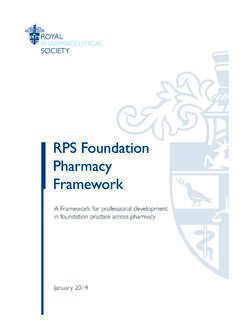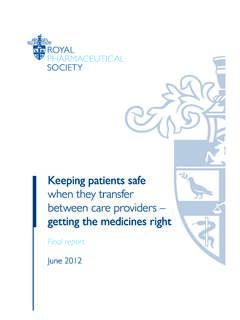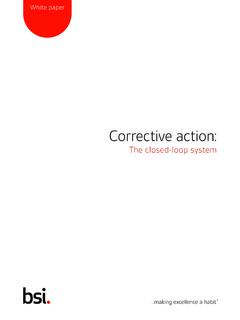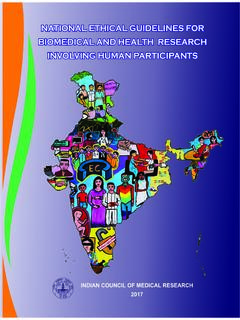Transcription of Improving patient outcomes - Royal Pharmaceutical Society
1 Improving patient outcomes The better use of multi-compartment compliance aids July 2013 Endorsed by Improving patient outcomes the better use of multi-compartment compliance aids Page 2 of 29 Acknowledgements This document has been prepared by the Royal Pharmaceutical Society (RPS). We understand that health and social care is constantly developing, so intend to periodically review this resource. Comments from healthcare professionals and stakeholders are welcome and can be sent to The RPS is grateful to all the individuals, networks and organisations that have provided comment, advice and information in the production of this resource. In particular thanks are extended to: Nina Barnett Consultant Pharmacist, Care of Older People, East and South East England NHS Specialist Pharmacy Services David Green Specialist Pharmacist, Strategic Support, Colchester Hospital University NHS Foundation Trust Dr Susanna Jacks GP at Vauxhall Surgery, Chepstow, Monmouthshire Lelly Oboh Consultant Pharmacist, Care of Older People, East and South East England NHS Specialist Pharmacy Services Dr Kendal Pitt Senior Technical Director, GlaxoSmithKline, Ware, UK Professor Theo Raynor Professor of Pharmacy Practice, University of Leeds; Co-founder and academic advisor, Luto Research Ltd The draft resource was sent to a wide range of individuals and organisations from within and outside pharmacy for comment; we are grateful for their feedback, which was used to help refine the resource.
2 The organisations that responded included: Ambulance Pharmacists Network British Medical Association Care Inspectorate (Scotland) Company Chemists Association Faculty of Pharmaceutical Medicine National Acute Primary Services Group (Scotland) National Clinical Trials Group NHS Greater Glasgow and Clyde Area Numark Pharmacists Law and Ethics Association Pharmaceutical Advisors Group Pharmaceutical Committee Pharmacy Voice Primary and Community Care Pharmacy Network Primary Care Group of the Scottish Directors of Pharmacy Primary Care Pharmacists Association RPS National Pharmacy Boards RPS Pharmaceutical Science Expert Advisory Panel Scottish Directors of Pharmacy Group The Medicines and Healthcare products Regulatory Agency The Pharmaceutical Services Negotiating Committee United Kingdom Medicines Information Executive UK Ophthalmic Pharmacy Group W and W Medsystems Improving patient outcomes the better use of multi-compartment compliance aids Page 3 of 29 Foreword The Royal Pharmaceutical Society (RPS) is the professional body for pharmacists and pharmacy.
3 Our Royal Charter contains four objectives one of which is to promote and protect the health and well being of the public through the professional leadership and development of the pharmacy profession and another is to maintain and develop the science and practice of pharmacy in its contribution to the health and well being of the public. It is an imperative that we lead and promote the advancement of science, practice and education in pharmacy in order to shape and influence the future delivery of pharmacy driven services. As the proportion of older people continues to grow in Scotland, England and Wales it is anticipated that social factors will continue to drive health and social care requirements. The need for medicines and the demand for quality Pharmaceutical care supporting people to best use their medicines will continue to grow. A review into general care for older people in Scotland1 has identified that the existing approach must be improved so that care is patient -centred and outcome-focussed, designed to support patient capability, independence and re-ablement as opposed to care which is designed around dependence, incapacity or on the assumption that it will always be required.
4 In England, the concept of medicines optimisation2 has similar drivers and is underpinned by four key principles: i) understanding the patient experience; ii) evidence-based choice of medicines; iii) ensuring that medicines use is as safe as possible; and iv) making medicines optimisation part of routine practice. Leadership together with appropriate incentives are required to promote change in the existing infrastructure, so that better and sustainable services can be designed around patients and delivered successfully to support healthy independent living and the safe and effective use of medicines. Services must ensure that polypharmacy is appropriate, fully involve patients in decisions about their health and social care needs, and aim to achieve both adherence to treatment and concordance between healthcare professionals and patients.
5 The RPS believes that supporting the best use of medicines will involve identifying problems with medicines-use, medication review and consideration of patient characteristics to find the best solution. A multi-compartment compliance aid is one tool amongst many to help with medicines use but other interventions also exist, which as part of a patient -centred and quality approach must also be considered. The overarching goal of this report is to improve patient outcomes in medicines use through a better understanding of patient needs and expectations and which is informed by the evidence-base currently available. Mair Davies David Branford John Cromarty Welsh Pharmacy Board Chair English Pharmacy Board Chair Scottish Pharmacy Board Chair Royal Pharmaceutical Society Royal Pharmaceutical Society Royal Pharmaceutical Society Improving patient outcomes the better use of multi-compartment compliance aids Page 4 of 29 Contents Acknowledgments.
6 2 Foreword .. 3 Executive Summary ..5 1 Our recommendations .. 6 2 Rationale supporting recommendations .. 7 Adherence and patient outcomes .. 7 Stability of medicines stored outside of their original packaging .. 9 Barrier properties .. 11 Potential interactions between medicines repackaged within multi-compartment compliance aids .. 12 Risks of concurrent use of multi-compartment compliance aids and other systems of medicines administration .. 13 Risks where an MCA system cannot accommodate dosing instructions or cannot include all necessary information .. 14 Alternatives to multi-compartment compliance aids .. 15 Reduction in patient and carer understanding of medicines ..16 3 References .. 17 4 Bibliography .. 19 Appendix 1 patient assessment criteria .. 20 Appendix 2 Medicines suitability guidance .. 21 Appendix 3 Practice considerations for the use of MCA.
7 24 Improving patient outcomes the better use of multi-compartment compliance aids Page 5 of 29 Executive Summary The use of multi-compartment compliance aids (MCA)* has become regarded as a panacea for medicines use and is often integrated into practice and service policy without giving due consideration to the alternatives available. This report aims to help continue the journey to Improving patient outcomes with the better use of medicines, through the provision of knowledge and information to pharmacists, healthcare professionals and other stakeholders involved in health and social care. There needs to be a better understanding of the selection of an MCA as one adherence intervention amongst many, the evidence-base with the use of MCA, the practice considerations and the benefits and risks. Although MCA may be of value to help some patients with problems managing their medicines and maintaining independent healthy living, they are not the best intervention for all patients and many alternative interventions are available.
8 The evidence-base indicates that MCA should not automatically be the intervention of choice for all patients. Not all medicines are suitable for inclusion in MCA. Furthermore, all stakeholders should recognise that the re-packaging of medication from the manufacturer s original packaging may often be unlicensed and involves risks and responsibility for the decisions made. With the limited evidence base currently indicating a lack of patient benefit outcomes with the use of MCA, it is a recommendation of the RPS that the use of original packs of medicines, supported by appropriate Pharmaceutical care, should be the preferred intervention for the supply of medicines in the absence of a specific need for an MCA in all settings. This is in line with the findings of the RPS working group looking at Pharmaceutical care in care home settings in Scotland, in their report Improving Pharmaceutical Care in Care A patient -centred approach to identifying the best intervention must be through a sustainable and robust individual assessment of both the level of care required by the individual, the reasons for both intentional and non-intentional non-adherence and the most suitable solution.
9 The RPS recognises that patient -facing pharmacists cannot fully implement the recommendations within this document on their own and that an integrated approach between health and social care, between commissioners and service providers, and amongst pharmacy bodies is required on the continuing journey to improve patient outcomes . *This document defines a multi-compartment compliance aid as a repackaging system for solid dosage form medicines, such as tablets and capsules, where the medicines are removed from manufacturer s original packaging and repackaged into the MCA. For the purposes of this document, this definition of an MCA would include repackaging systems such as monitored dosage systems (MDS) and daily dose reminders. Some new MCA systems are now marketed as being able to accommodate liquid dosage forms. MCA exist as both sealed or unsealed systems, and cassette (where several medicines can be in one compartment) or blister (where there is only one dose of a medication in each compartment) systems.
10 Improving patient outcomes the better use of multi-compartment compliance aids Page 6 of 29 1 Our recommendations There are many ways in which patients can be helped to take their medicines safely, or carers supported to administer medicines correctly, and a broad range of alternative interventions (of which MCA are one type) are discussed within this report. The choice of an MCA must be considered within the range of alternative intervention options, and must not be regarded as the only solution. Health and social care professionals must collaborate to ensure that: 1. The use of original packs of medicines with appropriate support is the preferred option of supplying medicines to patients in the absence of a specific need requiring an MCA as an adherence intervention. 2. In support of independence and re-ablement, patients who can safely self-administer their medicines should be encouraged to do so and where they are unable to do so, there must be appropriate training for carers so that they are able to administer medicines from original packaging.













